Veganism, Ethics & Diet
Veganism
“The word ‘veganism’ denotes a philosophy and way of living which seeks to exclude – as far as is possible and practical – all forms of exploitation and cruelty to animals for food, clothing or any other purpose; and by extension, promotes the development and use of animal-free alternatives for the benefit of animals, humans and the environment. In dietary terms it denotes the practice of dispensing with all products derived wholly or partly from animals.” …The Vegan Society
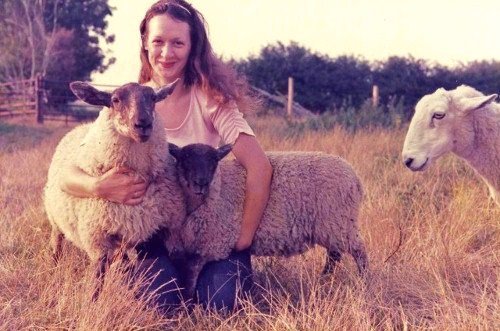
Veganism can be seen as an expression of compassion and also as a form of social, philosophical, ethical and/or spiritual protest against the unnecessary exploitation of other sentient beings, when alternative options are available to maintain and even optimize the health and well-being of animals, humans and the environment.
Compassion (derived from Latin and meaning: “to suffer together with”) is a profound human virtue and emotion prompted by the pain of other living beings and is ranked as one of the greatest virtues in numerous philosophies and spiritual traditions. More vigorous than empathy, the feeling of compassion commonly gives rise to an active desire to alleviate another’s suffering. This desire to alleviate suffering is the primary motivator for embracing veganism and a strict vegetarian diet.
Sentience implies the ability to experience pleasure and pain. As vegans, we believe that all sentient beings are entitled, at the very least, to the right not to be subjected to unnecessary suffering. We also assert that all sentient beings, humans or nonhuman, have the basic right not to be treated as the property of others.
“We must fight against the spirit of unconscious cruelty with which we treat the animals. Animals suffer as much as we do. True humanity does not allow us to impose such sufferings on them. It is our duty to make the whole world recognize it. Until we extend our circle of compassion to all living things, humanity will not find peace.” …Albert Schweitzer, The Philosophy of Civilization
 Omnivores and Carnivores
Omnivores and Carnivores
The practice of consuming meat and other animal products originated with ancient hunting and herding practices and the reliance upon animals for survival when plant foods were scarce or difficult to obtain. The consumption of meat by humans is also directly linked to concepts of predator and prey and the observation that all organisms in Nature feed upon other living things (except those that photosynthesize). For many individuals, the use of animals and animal products for sustenance is simply viewed as part of the natural order – animals that are higher on the food chain consume and benefit from animals that are lower on the chain. Many insist that humans are no more or less predatory than a lion hunting a gazelle, for example.
In response to this logic, it should be noted that humans do not possess the same physiological characteristics as lions or other carnivores nor are we driven completely by instinct. We are also the only species that take much more than needed from Nature to survive and we are the only species that kill for reasons other than survival – or kill with intentional cruelty. Yes, it’s very apparent that humans can be predatory in many ways, towards each other and towards the world around us, but eating animals is really just a learned behavior passed down and sometimes forced upon us by our parents and society. Very few children, if any, relish gnawing meat from cartilage, tendon and bone.
Carnivores are animals that biologically need to ingest flesh to survive and omnivores are animals, either human or nonhuman, that can survive by ingesting either plant and animal matter. “Carnivore” and “omnivore” refer to one’s biological predisposition, but when eating meat becomes a choice, rather than a biological or survival necessity, then this behavior is based upon an ideology (set of beliefs). This choice is referred to as carnism.
Because of the violence inherent in carnism (modern meat production requires intensive and extensive violence toward animals), this ideology uses a set of social and psychological defense mechanisms to distort people’s perceptions and block their awareness and empathy when they eat meat, enabling humane people to participate in inhumane practices, often without realizing what they’re doing.
In meat-eating cultures around the world, people tend to find a small handful out of thousands of animal species palatable and view the rest as distasteful. The species a culture deems palatable is not based upon logic or economics but simply upon social conditioning.
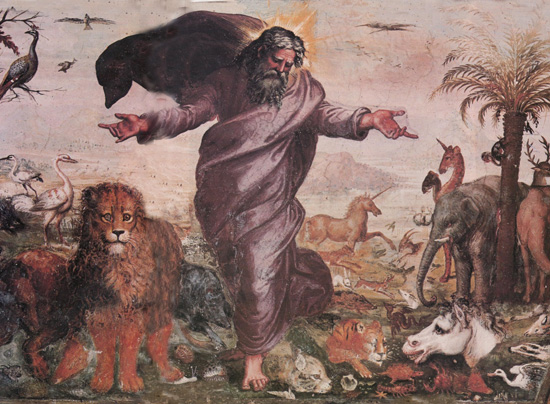 Dominion
Dominion
The belief in human superiority and moral authority to exploit and exert dominance over other species and the land, can be traced to the ancient world and is maintained to this day by several commonly held ideas:
A widely accepted belief is the theological concept of “dominion,” from Genesis (1:20–28), where Adam is given “dominion over the fish of the sea, and over the fowl of the air, and over the cattle, and over all the earth, and over every creeping thing that creepeth upon the earth.” The Qur’an Majeed of Islam also states that man has dominion over animals; however, it is emphasized in Islam that animals be treated as humanely as any other of God’s vast creation, but this does not prohibit slaughter.
The concept of dominion has been misinterpreted over the ages to imply ownership, rather than “responsibility of guardianship”. This belief in ownership reinforces the idea that animals are mere objects or property whose reason for existence and sole purpose is to serve mankind. There is also the belief that animals are inferior because they lack rationality and language, and as such are worthy of less consideration than humans, or even none.
Also springing from this is the idea that individual animals have no separate consciousness or identity: a pig, for example, is merely one of any number of other pigs, which leads to the conclusion that the exploitation of individual animals is acceptable so long as the species is not threatened with extinction.
Speciesism
Assigning different values and rights to the life of another species, based on its supposed difference from humans, is known as speciesism. This is discrimination, and like all discrimination it overlooks or underestimates the similarities between the discriminator and those discriminated against.
Many humans seek to justify their oppression and exploitation of non-humans by pointing to other supposed empirical differences. One of the many claimed differences is that non-humans, unlike humans, are unable to think or act morally. That is, we claim that only those who can recognize and act on moral obligations to others can be members of the ethical community and since animals are supposedly incapable of such conduct, we are justified in treating them as things without moral significance. This is a very distorted and arrogant view of mankind’s place and importance within the Universe.
“The animals of the world exist for their own reasons. They were not made for humans any more than black people were made for white, or women created for men”…Alice Walker, author of the Color Purple
Tradition
Tradition often plays a key role too in the human/animal relationship – this is how things were done in the past for survival and this is how things are done today. However, our modern lives bear little or no resemblance to ancient living whatsoever. Modern methods of animal agriculture (factory farms) are very different from that of our ancestors. Somehow, the respect and value of life has been lost along the way. One must also consider that the majority of us are no longer experiencing extreme survival situations related to food.
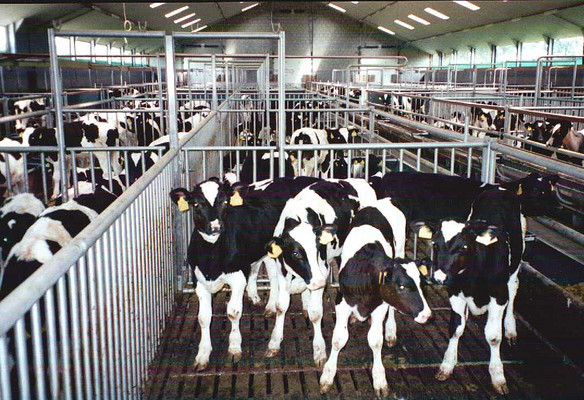 Modern Animal Agriculture
Modern Animal Agriculture
In the late nineteenth century there was a movement toward mass production in industry, causing a surge in urban settlement. This meant more people to feed, with fewer farmers to supply the food. As a result, the agricultural industry had to begin adopting the same mass production techniques that lead to the demand for more food. At this point in history, meat and animal products were not only considered a necessity for health and survival, but also an economic commodity.
To meet ever increasing demands for animal products, factory farms began to emerge. The first animals to be factory farmed were chickens. The discovery of vitamins and their role in animal nutrition, in the first two decades of the twentieth century, led to vitamin supplements, which in 1920s America allowed chickens to be raised indoors. In 1960’s America, pigs and cows began to be raised on factory farms. This innovation then spread to Western Europe.
The concept of the family farm, where animals had pasture to graze and room to exercise their natural behaviors, gave way to large scale commercial operations whose sole purpose was mass production of meat and animal products. The well-being of the animals was no longer a consideration at all.
It has become very apparent that factory farming is not only contributing to unimaginable suffering for animals, but is also destroying the environment and jeopardizing human health. The livestock from factory farms are major contributors of greenhouse gas emissions, which are thought to be responsible for global warming. They are also major contributors of ammonia emissions, which contribute significantly to acid rain and acidification of ecosystems. The term “livestock” refers to all farmed animals, including pigs, birds raised for meat, egg-laying hens, and dairy cows.
Livestock are also key players in increased water use, accounting for over 8% of global water use, mostly for the irrigation of feed crops. Factory farms are probably the largest source of water pollution, contributing to “dead” zones in coastal areas, destruction of coral reefs, human health problems and the emergence of antibiotic resistance. The major sources of pollution are from animal wastes, antibiotics and hormones, chemicals from tanneries, fertilizers and pesticides used for feed crops, and sediments from eroded pastures (information obtained from veganoutreach.org).
Many people are completely unaware that the dairy and egg industry also contribute to an enormous amount of exploitation and suffering, probably more so than animals raised for meat consumption. These animals are basically slaves of production throughout their extended miserable lives. Animals raised for meat at least proceed from stockyard to slaughterhouse relatively quick.
While “vegetarians” who shun meat for ethical reasons but consume eggs and dairy products have good intentions, few realize that male chicks, who offer nothing to the egg production industry, are destroyed immediately and often by gruesome methods. Dairy cows are force inseminated and remain in a constant state of pregnancy. Baby calves are immediately removed from their mothers, causing great distress to both mother and calf. Male calves are slaughtered for veal or shipped off to stockyards for meat production and female calves are raised and then forced into dairy production.
If you honestly put yourself in the position of an animal enslaved in the factory farm industry, confined to an artificial world, beaten and tortured, denied the chance to live a long, healthy life, even denied sunlight most of the time, then you would understand why the unconscionable industry of factory farms must be abolished. These are issues that have long been neglected or intentionally ignored by society. For many it’s just a lack of awareness. Indifference, on the other hand, is having that awareness and doing nothing about it, and this is simply unacceptable for ethical human beings.
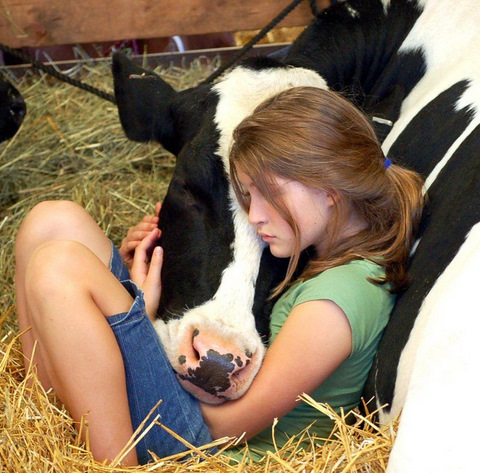 Strict Vegetarianism – the Compassionate Choice
Strict Vegetarianism – the Compassionate Choice
Fortunately, with all the mechanical innovations in crop farming and harvesting, a better understanding of nutrition and supplementation, and a wider variety of organic and plant-based food options available, consumption of animal products is no longer a necessity, nor even the best option for health or survival. Individuals can now make alternative and compassionate choices as to how they wish to nourish themselves.
Strict vegetarianism, or vegan diet, is the practice of subsisting wholly on a diet composed of vegetables, grains, fruits, nuts, and seeds. A strict vegetarian therefore abstains from all meat, including game, poultry, fish, crustaceans and shellfish. A strict vegetarian also excludes all animal products such as eggs, dairy and honey and any animal by-products of slaughter, such as rennet or gelatin.
The vegan diet is a relatively new concept to many Westerners, even though the practice can be traced back to ancient times and has existed for thousands of years in some Eastern philosophies. Strict vegetarianism, or vegan diet, is a dietary option for individuals who are concerned with animal rights and animal welfare; the ethics of factory farming; the environmental and social benefits of organic farming and agricultural sustainability; and holistic wellness. It should be noted that a vegan diet is only one aspect of veganism.
Occasionally, vegetarians encounter the claim by non-vegetarians that plants are sentient, as an objection to promoting and adhering to a strict vegetarian diet. Their reasoning suggests that since “all life” is sentient, it doesn’t matter what people eat. This reasoning is generally not based upon a concern for life at all, but is rather an absurd rationalization for killing without moral consequence. This reasoning also suggests a poor understanding of “sentience” (see “Sentience in the Plant Kingdom” below). Even if this reasoning were valid, it should be noted that agricultural animal farming is responsible for the destruction of far more plants and damage to the environment than vegetarians could ever inflict upon the land.
Sentience in the Plant Kingdom
One argument supporting the sentience of plants is that they are highly evolved and complex organisms that ‘react’ to their environment in different ways. Some plants ‘react’ to insects by releasing deterrent or poisonous chemicals. A few plants react to touch stimuli. The Venus Flytrap, for example, catches and consumes insects when insects come in contact with tiny hairs that trigger the trap to close. Some plants release chemicals to deter other plants from growing near them. Some plants are either aggressive or passive in root development depending on whether or not they are around their own species.
The misconception arises when the assumption is made that such plant ‘behavior’ is caused by the plants subjectively experiencing the world through sense data, or sentience, rather than by insentient hormonal, electrical, mechanical, and chemical processes. It has been observed that some plants do respond somewhat to voice or musical stimuli, but this response generally takes hours or days, indicating a very low level of sentience (Sentience Quotient), or no sentience at all compared to that of animals.
We recognize that there are insentient hormonal, electrical, mechanical, and chemical processes that cause various “behaviors” and events to take place. The development of these insentient processes can be explained by hundreds of thousands of years of natural selection, where hundreds of billions of small, genetic mutations and combinations survived or failed to survive based on their ability to adapt.
Neuroscientists have positively confirmed the areas of our neurology (brain stem, limbic system, autonomic nervous system) that serve to provide sentience and complex emotion. All vertebrates and at least some invertebrate animals have these nervous system components, providing strong positive, empirical evidence that such beings are sentient, and that most of them have highly subjective, emotional lives. Plants do not have any of these neurological components. Even an organism with a hormonal system instead of a nervous system could be intelligent to some degree in theory, but it would be an extremely low level of intelligence, to say the least. Some plants are also able to produce electrical signals, yet it is questionable if they use them in the same way animals do.
Organisms such as humans, dogs, chickens, pigs, cows, goats, and sheep look, behave, and move in ways that highly suggest sentience defined as the experience of sensation and emotion. Organisms such as plants look, behave, and are stationary (unless the wind is blowing) in ways that highly suggest little or no sentience (again, defined as the experience of sensation and emotion).
If there is any room for debate and legitimate questions on sentience, it would apply to the insect world. Insects such as spiders certainly behave and move in a manner that highly suggests at least some degree of experiential sentience. Sentience is measured in degrees, and how sentient certain organisms like spiders may be, is difficult to determine. But we know beyond any reasonable doubt that vertebrates are sentient; and we know with a very high degree of confidence that plants are not sentient, or at least not in the same way or to the same degree as vertebrates.
As entities with limited or no sentience, plants would have no subjective, conscious interest that would be morally relevant to whether we use them for food or other sufficient reasons (e.g. removing/destroying them to build a shelter). However, we should respect plants in the same way in which we respect the beauty, complexity and the soul of all Nature. This respect includes reducing our impact upon them as much as is reasonably possible, and avoiding senseless and unnecessary destruction. Our moral obligations regarding plants, however, do not compare in kind to our direct moral obligations to vertebrates, whose sentient and conscious, intentional striving for life and survival is obvious to us.
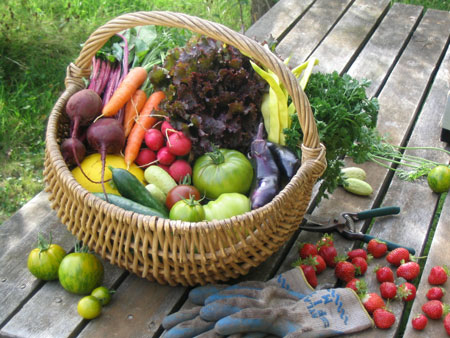 In Closing
In Closing
There’s no argument that the vegan diet can be a challenge initially. It involves a complete change in the way one purchases and prepares food and this change can be overwhelming for some. But it is not a difficult diet to maintain and with time it becomes second nature. It does, however, require education, commitment and some practice in the kitchen. Almost every supermarket or local co-op contains an organic and natural food section where vegetarian items can now be purchased. It is my sincere wish that this website will also help you with your vegan culinary skills and open to you a whole new world of taste, texture and peace of mind.
“It is the position of the American Dietetic Association that appropriately planned vegetarian diets, including total vegetarian or vegan diets, are healthful, nutritionally adequate, and may provide health benefits in the prevention and treatment of certain diseases. Well-planned vegetarian diets are appropriate for individuals during all stages of the life cycle, including pregnancy, lactation, infancy, childhood, and adolescence, and for athletes.”
“An evidence-based review showed that vegetarian diets can be nutritionally adequate in pregnancy and result in positive maternal and infant health outcomes. The results of an evidence based review showed that a vegetarian diet is associated with a lower risk of death from ischemic heart disease. Vegetarians also appear to have lower low-density lipoprotein cholesterol levels, lower blood pressure, and lower rates of hypertension and type 2 diabetes than non-vegetarians. Furthermore, vegetarians tend to have a lower body mass index and lower overall cancer rates.”…Position of the American Dietetic Association: Vegetarian Diets, Journal of the American Dietetic Association, July 2009
